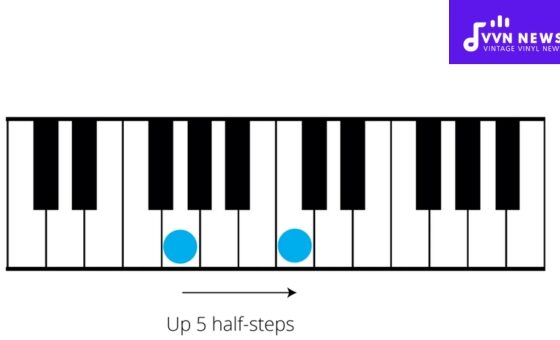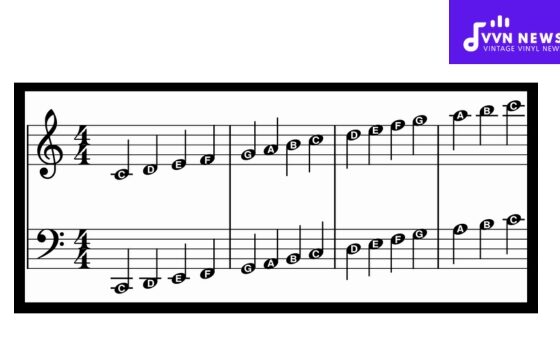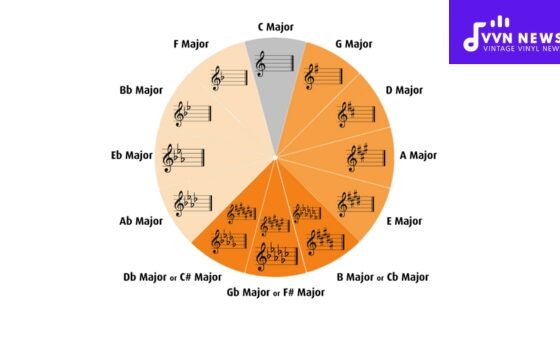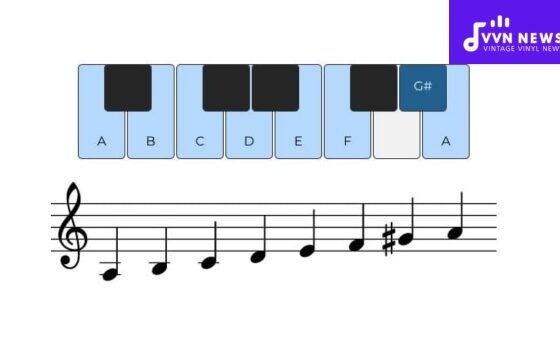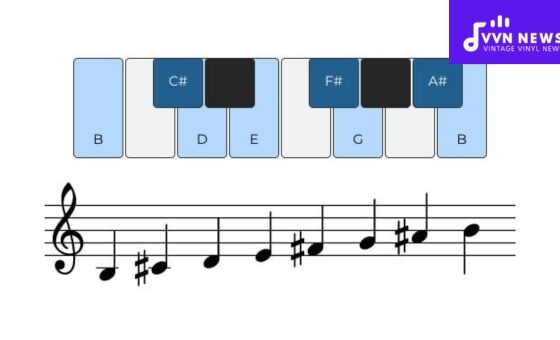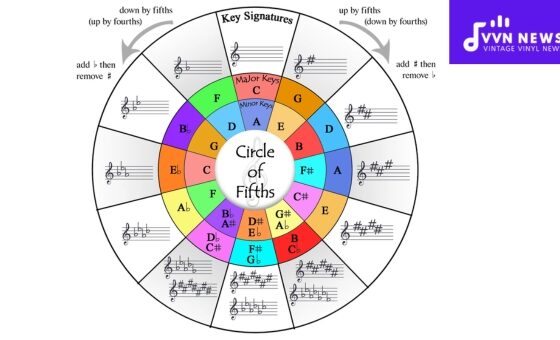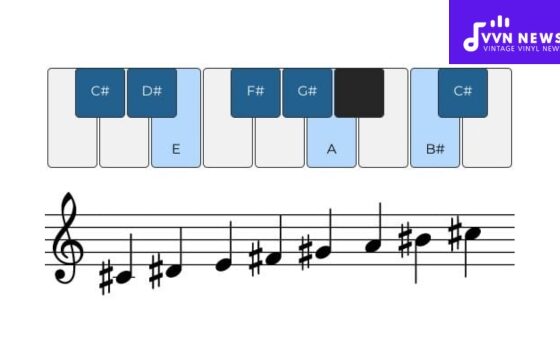As the summer lessens its hold and autumn reclaims its place, students find themselves returning to the halls of academia, eager for fresh knowledge.
In the realm of music, every new semester presents an opportunity for students to delve deeper into their passion and expand their technical prowess.
This is why I have decided to share some essential back to school music theory tips to kickstart your studies. It’s time to dust off your keyboard, unlock your piano bench, or cinch up your violin under your chin.
If you’re a novice songwriter experimenting with chord progressions or a budding virtuoso exploring nuanced articulations in complex musical compositions, a solid grounding in music theory is invaluable.
These tips serve as an easy-to-understand guide taking care not only of simplicity but maintaining professionalism as well.
Back To School Music Theory Tips
Music theory can sometimes come across as a maze of symbols and terms that might overwhelm you at first.
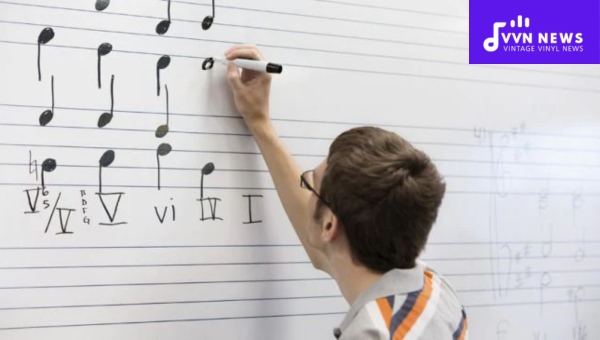
With the right approach, it can be just as engaging and fun as playing your favorite tune.
As the school season swings into gear, let’s explore some creative strategies to master music theory.
Use Movement and Play
Incorporating physical movement into music theory learning can significantly enhance your memory and engagement.
Physical activity stimulates brain function, making it easier to absorb complex information.
Try this: map out scales or chord progressions on the floor by arranging notes on placards.
Hop from one to another in the correct sequence, reinforcing kinetic learning with visual aids.
One fun technique is assigning hand gestures to different musical intervals; play or sing an interval while making its corresponding gesture.
Use Games
Games are a fantastic way to make music theory stick without it feeling like a chore.
For instance, flashcards have been mainstays for a reason — they work! Make them yourself or invest in a set that includes notations, symbols, rhythms, and key signatures.
Try digital options such as apps or online quizzes that turn drills into interactive challenges.
Websites like musictheory.net offer free exercises calibrated to your level of proficiency.
Don’t limit yourself to pre-made games; creativity is encouraged!
Think ‘Music Theory Bingo’ where each square represents a different theory concept, or ‘Theory Jeopardy’ where questions range from basic note values to advanced harmonic functions.
Get Composing
Perhaps one of the most effective ways to internalize music theory concepts is through composition.
When you create your melodies, harmonies, or even full compositions, you actively apply what you’re learning.
Start with simple tasks like writing melodies using only the pentatonic scale before progressing to more complex structures involving chords and progressions.
With each composition exercise, you cement theoretical elements by putting them into practice.
For those who enjoy technology integration, software like MuseScore can be an invaluable tool for budding composers.
It allows for easy notation and listening back to compositions – this auditory feedback is crucial in recognizing the correct application of theoretical principles.
Also Read: Mastering Chords In A Minor [Improve Your Composition Skills]
Teach Through Listening
One of the most effective methods to absorb music theory is by teaching through listening.
This technique enables you to attune your ears to various elements in music such as melody, harmony, and rhythm.
Start by diving into classical masterpieces—you’ll hear the scales, modes, and chord progressions that are fundamental in musical composition.
Breaking down a piece by its structure (exposition, development, and recapitulation for instance in sonata form) can be an enlightening auditory exercise.
When you listen actively—instead of just passively hearing music—focus on the components that come together to create the whole piece.
Identify instruments, follow thematic material, or even transcribe solos to gain a deeper appreciation of their construction.
Use Interactive Resources
Living in a digital age comes with its perks for music lovers. Numerous interactive resources are at your disposal designed to fortify your grasp on music theory.
Websites like musictheory.net or teoria.com offer exercises that familiarize you with notation, intervals, chords, and ear training just at the click of a mouse.
Moreover, look into apps available on tablets and smartphones focused on this learning pursuit.
Many contain gamified learning experiences that not only make acquiring knowledge fun but also highly effective due to their tactile nature combined with visual feedback.
Link to Favorite Music
Relating music theory to songs you love can solidify concepts with personal meaning.
Perhaps you’re a fan of The Beatles; analyzing their use of modal interchange or secondary dominants makes those concepts tangible rather than mere abstractions in a textbook.
Create correlations between theoretical concepts and tracks that resonate with you.
By doing so, learning doesn’t just stay within the confines of academic requirements but becomes part of your emotional connection with music which promotes long-term retention.
Listen to Podcasts and Learning Tracks
Diversify your educational intake by including podcasts—hear from professionals as they discuss theory alongside its application within different genres and styles.
Look for episodes dissecting songs or interviewing music theorists that can give insights beyond traditional classroom instruction.
Similarly, curated learning tracks often found on services like Spotify provide selected compositions highlighting specific theoretical elements.
Learners are thus given curated examples exemplifying particular aspects they may be focusing on at any given time.
Start with Basics
Always circle back to foundational principles of notation—scales, intervals, key signatures—even if they might seem basic after studying for a while.
The complexity found in advanced topics is distilled from these simple elements so it’s important not just to know them but to be fluent.
Revisiting fundamentals regularly throughout one’s studies ensures there are no weak links in your foundational knowledge leading up to advances more smoothly.
Group Study
Engaging peers offers multiple perspectives that enrich learning experiences through shared struggles and successes alike—it’s collaborative growth.
Form study groups or join online forums where discussion prompts everyone towards collective mastery over daunting subjects like counterpoint or modulation.
A cohort can drive motivation higher too since responsibilities towards group objectives compel each member towards consistent effort distinct from isolated study environments where it’s easier for discipline to waver unchecked.
Regular Practice
Consistency is key to developing a rich knowledge of music theory. It’s not about long, drawn-out study sessions but rather dedicated, focused periods where you actively engage with theoretical concepts.
Establish a practice routine that works for you; it can be as simple as dedicating 15 minutes each day to interval training or chord identification.
Create a schedule that might involve different elements of music theory on different days—Mondays for melody, Tuesdays for harmony, and so forth—helping keep your regimen dynamic and covering all bases over time.
Furthermore, consider keeping a practice diary. Jot down what you’ve worked on each session including successes and challenges.
This self-reflection process can help identify areas requiring extra attention while celebrating the progress made—a motivating factor to persist and enhance your skills.
Blending traditional teaching through listening with contemporary interactive resources will elevate your music theory prowess profoundly.
Linking learned concepts with beloved music deepens emotional connections alongside intellectual growth while incorporating podcasts provides context for applying theory in real-world scenarios.
Also Read: Transposition Chart [A Lifesaver For All Musicians]
FAQs
Can Music Theory Help With Playing Instruments?
Music theory enhances your ability to read music, predict chord changes, and improvise effectively on any instrument.
How Much Time Should I Spend On Music Theory Each Day?
Ideally, spend at least 15-30 minutes daily on music theory to stay sharp and make consistent progress.
Is It Necessary To Learn Music Theory To Write Songs?
While not strictly necessary, knowing music theory can greatly improve your songwriting skills by expanding your musical vocabulary.
What’s The Best Way To Memorize Key Signatures?
Utilize mnemonic devices and practice with circle of fifths charts; they’re a visually engaging way to commit key signatures to memory.
Can Music Theory Be Self-Taught?
Yes, with a plethora of online resources, apps, and books available, you can successfully teach yourself music theory. Guidance from a tutor or class can provide valuable structure and feedback.
Also Read: How To Transpose Up An Octave [Maximize Your Music Skills]
Conclusion
To synthesize the music theory tips discussed, remember that practice is at the core of mastering any skill. Seek out interactive resources and don’t shy away from using technology and games to reinforce learning.
Whether it’s through listening to podcasts, grouping up with peers for study sessions, or composing your music, each effort brings you closer to fluency in the language of music.
Most importantly, never lose the connection with why you love music — let your favorite tunes inspire and guide your learning journey towards musical excellence.

